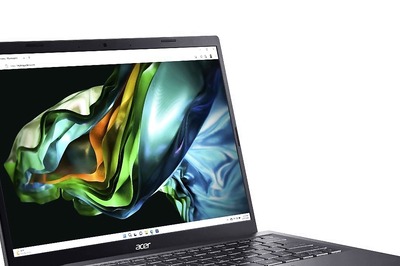
views
LONDON: Investors are buying up debt of everything from Brazilian airlines to Indian ports, hastened by a hunt for yield and default levels among emerging market companies below that of U.S. peers.
In a sign of the sector’s growing appeal, year-to-date flows into emerging bonds have turned positive for the first time in eight months, with $3.5 billion flowing in during the week to Nov. 18, the fourth largest inflows ever, according to BofA, citing EPFR Global data.
A breakdown of the push into emerging market corporate debt is not available, but fund managers see signs of growing interest as the passing of the U.S. election and progress on COVID-19 vaccines reawakens investors’ appetite for risk.
“The Fed has indicated it will not hike rates for a long time and in this environment the search for yield will continue and intensify,” said Rodica Glavan, head of emerging market corporate fixed income at Insight Investment.
“People need to put money to work and as inflows come in they will need to be invested and EM corporates stand to benefit.”
EM corporate fixed income offers a year-to-date return of 5.6%, less than 30-year Treasury bonds, but more than other fixed income peers like U.S. corporate high-yield and emerging market sovereign, according to BofA.
And investors see more upside potential as emerging market corporate bond spreads are trading at around 320 basis points, short of the 255 basis points level of mid-February, indicating there’s room for more tightening and, therefore, more returns.
Their bullishness is built on a belief that a COVID-19 vaccine should help tip the balance back in favour of sectors such as trade, tourism and commodities, the engines motoring emerging markets that have been sputtering since the pandemic.
Brazilian airline bonds are being eyed by Glavan, who is already invested in Pemex, the state-owned Mexican energy behemoth.
Iron ore, copper and zinc producers in South America, as well as Middle East and Indian ports and Egyptian companies in the tourism sector are in the cross-hairs of Alejandro Arevalo, emerging market debt manager at Jupiter Asset Management.
“Once the vaccine starts to play through we’re going to see some rotation into Latin America as it has been one of those regions where people have been very cautious because of the continued high spread of the virus and with a vaccine we may see these economies outperform,” said Arevalo.
RISKS
But risks lurk beneath the surface. Several Chinese state companies have defaulted or faced credit stress in recent weeks, sparking a selloff in China’s corporate debt market.
The development alarmed some investors who generally assume state-owned firms will be supported by the government in times of stress.
“More defaults are coming as Chinese authorities refocus on deleveraging of SOEs (state-owned enterprises) now that the worst of the pandemic has passed,” said Chang Li, China country specialist at S&P Global Ratings. “Default rates are still low overall, however, and will unlikely lead to systemic risk.”
Despite the ravages of the pandemic, default rates among emerging market high-yield corporates year-to-date stand at about 3%, roughly half that of U.S. high-yield firms, said Glavan. It’s also less than during the global financial crisis when it touched 10.5% for emerging market companies.
Fresh flare-ups in COVID-19 infections that hinder the global economic recovery and sanctions or other adverse policy action by the incoming U.S. administration against the likes of Russia, Turkey and China are other potential pitfalls for investors.
But most investors are betting on a more supportive backdrop, with a Joe Biden presidency seen offering a more predictable policymaking on trade and U.S.-China relations. The outlook for a lower U.S. dollar will also be helpful for developing currencies.
“Looking ahead into 2021, the outlook for EM corporate fixed income remains constructive,” said Michael Bolliger, chief investment officer, global emerging markets at UBS. “EM companies stand to benefit from a gradual normalization in global economic activity, the ultra-accommodative monetary policies of major global central banks, and our expectation of a weaker U.S. dollar.”
(Editing by Toby Chopra)
Disclaimer: This post has been auto-published from an agency feed without any modifications to the text and has not been reviewed by an editor
Read all the Latest News, Breaking News and Coronavirus News here




















Comments
0 comment